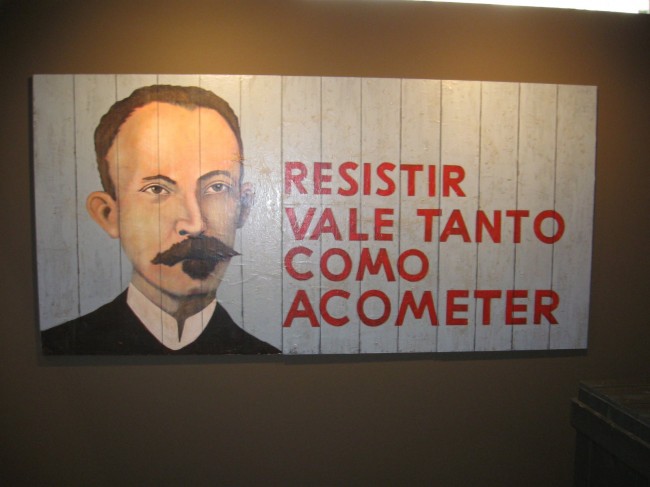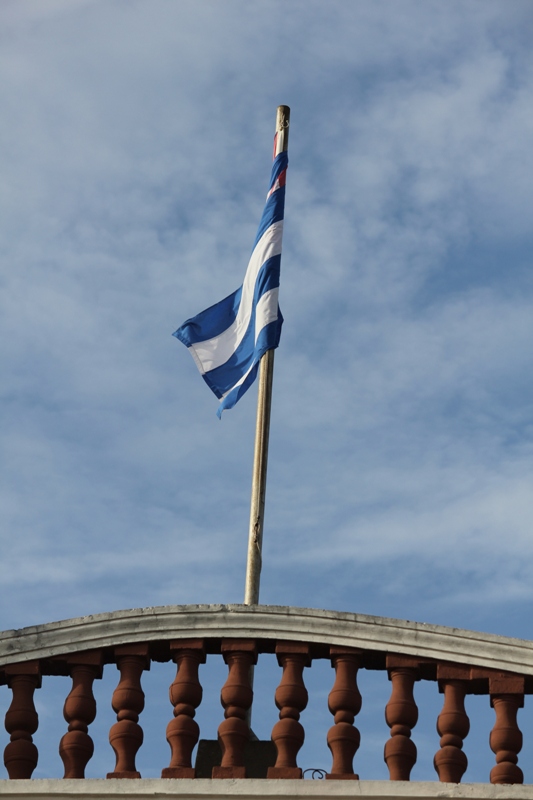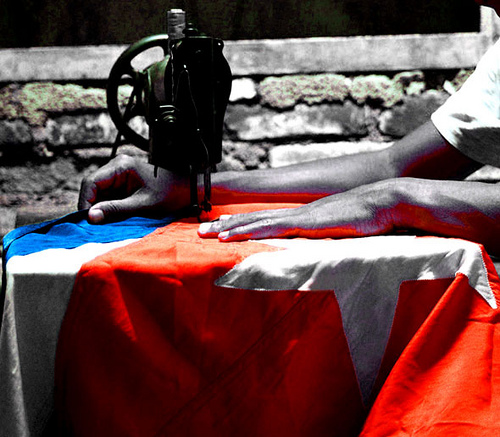
Exploding on the sands of the world, the dissatisfied burst. Mobs of low-paid workers, fed up with lies and empty promises, remember that governments have no more power than their subjects choose to give them, and they say, “Enough already.” They say: “Out with the tyrants.” Out with the perpetual satraps, who have made of our country a region of bare survival. A land without happiness.
Tunisia exploded first, and a domino effect spills over multiple countries. Yemen, Algeria, Jordan. And now Egypt, cradle of humanity, that threatens to remove the Mubarak cancer by the force of the protesters.
May god rest his soul: men like the Romanian Ceaucescu know what I mean when I say popular force. The world moves, the crushed crawl out from under the boots, deciding to be more than bits and pieces. Deciding to decide for themselves. It has happened many times. It will continue to come to pass, by terrestrial or divine law.
Meanwhile, my island, silent as the stone raft of Saramago, fleet unscathed. No one is shaken off. Forgetting that once, back in 1930 — when we were so worthy — we extirpated the jackass claws of Machado, and twenty-nine years later, again exercising the right of dissent, erased the Tyrant Batista, cause of so many evils, whom God, as with Ceaucescu, did not allow to rest in peace.
I wonder: why not Cuba? As I watch TV, listen to the demands of the volatile Egyptians. Listen, for example: “We got tired of lies, misery. For decades we endured the dictator Mubarak who has ruined this country.” We hear Egyptian scholars say:” I am a lawyer and live like a beggar. I earn $60 a month, and my rent alone is $75.” And we can not avoid the immediate association with our island.
I’ve heard all the arguments of the Egyptians. And I do not think there is one, I repeat — not one — which does not apply to my country. The same hunger and hopelessness, the same distaste for an inept government; the very low wages that don’t stretch even to survive, the underground corruption; the warning, just look at the living standards of the ruling class; and now, ironically, Cuba is also added to the list of countries with high unemployment.
And then there arises, inevitably, the pointed question: Why not Cuba?
If I had to respond I would start by pointing out a subtle reality: The control of information in my tranquilized country is, aberrantly, more fierce than in countries such as those that have just exploded. For those who don’t believe information has such an important role, I suggest they ask themselves: Why has the opening act of every classic dictatorship in History been to seize the methods of communication?
Look at the evidence, the steps in the snow that leave traces of intent and allow us to understand the reality: the newspaper Granma has published the article “Chain of illegalities” of the journalist (sic) Anaysi Fernández. A sad text reminding Cubans who claim information not classified by the state, who try to watch television through a cable connected toa clandestine satellite dish, that these acts will remain a crime for which they will feel the full weight of the law.
Clearly and without ambiguity the official Cuban journalist (sic) says: “On television broadcasts illegally distributed destabilizing and interventionist messages arrive daily, messages that are oblivious to the cultural values that dignify the human being.” Underline the word “destabilizing” which tells us a lot.
It also tells us a lot that the finance society Rafin returned the only telecommunications company in Cuba (ETECSA) to purely State hands, after buying the Italian Telecom 27% stake in the Cuban telephone business.
Translate this into practice: For $706 million the Cuban Government has acquired full control of national telephone service, fixed and mobile, without the inoffensive but always worrying oversight of the Italian partners. If before the handover, when even one “destabilizing” incident occurred somewhere in the country the phones of some “restless” citizens stopped working, including my own, the picture looks bleaker today.
Looking at the other side of the equation, then, this massive revolt in Egypt was planned and organized through communication via Twitter and Facebook. Made in Internet coordination where the voices are freer and the censors more inept.
Which is the reason why there is no freely accessible internet in Cuba. And the reason why the brand new fiber optic cable — ah! delicious theme for this blog! — from the Bolivarian Venezuela to Siboney Beach Santiago, rather than liberate Cuban, rather than connect them to the world, will suffocate communication. As of now I bet on it. And I would be delighted to lose.
This is why in Cuba all of the worrying telephones are tapped and the conversations recorded. The reason international television is exuberantly blockaded, and its free messages, messages of individuality where the frivolous coexists with the profound, the banal with the rich, must be countered even if doing so requires eliminating radioelectronic space. They know what’s at stake: The survival of the system.
There are other factors evaluated in this game of speculation. There are more fruits in the basket, more or less weight, to ponder the differences between a distressed but docile island, and other nations now raging hunger for democracy and prosperity.
Using factors of social psychology (Cubans persist today in the idea that nothing can be done, nothing can change their reality) and the undoubted superiority of the establishment in my country in the use of “pre-criminal” repression, they don’t want for riots to happen to put tanks in the street. In the case of Cuba, the tanks are invisible, but have never ceased to be there: “The streets belong to Fidel! The streets belong to the revolutionaries!” shout the mobs. Let no one dare, eh?
But if I had to bring some basic, core, defining argument to comprehend the nearly incomprehensible, the immutability of some oppressed versus the outbursts of many others, I would say: The Pharaohs of my Egypt know that if they can isolate their slaves from the world, keep them incommunicado, they will. And whether we like it or not, their results continue to be magisterial.
February 1 2011









